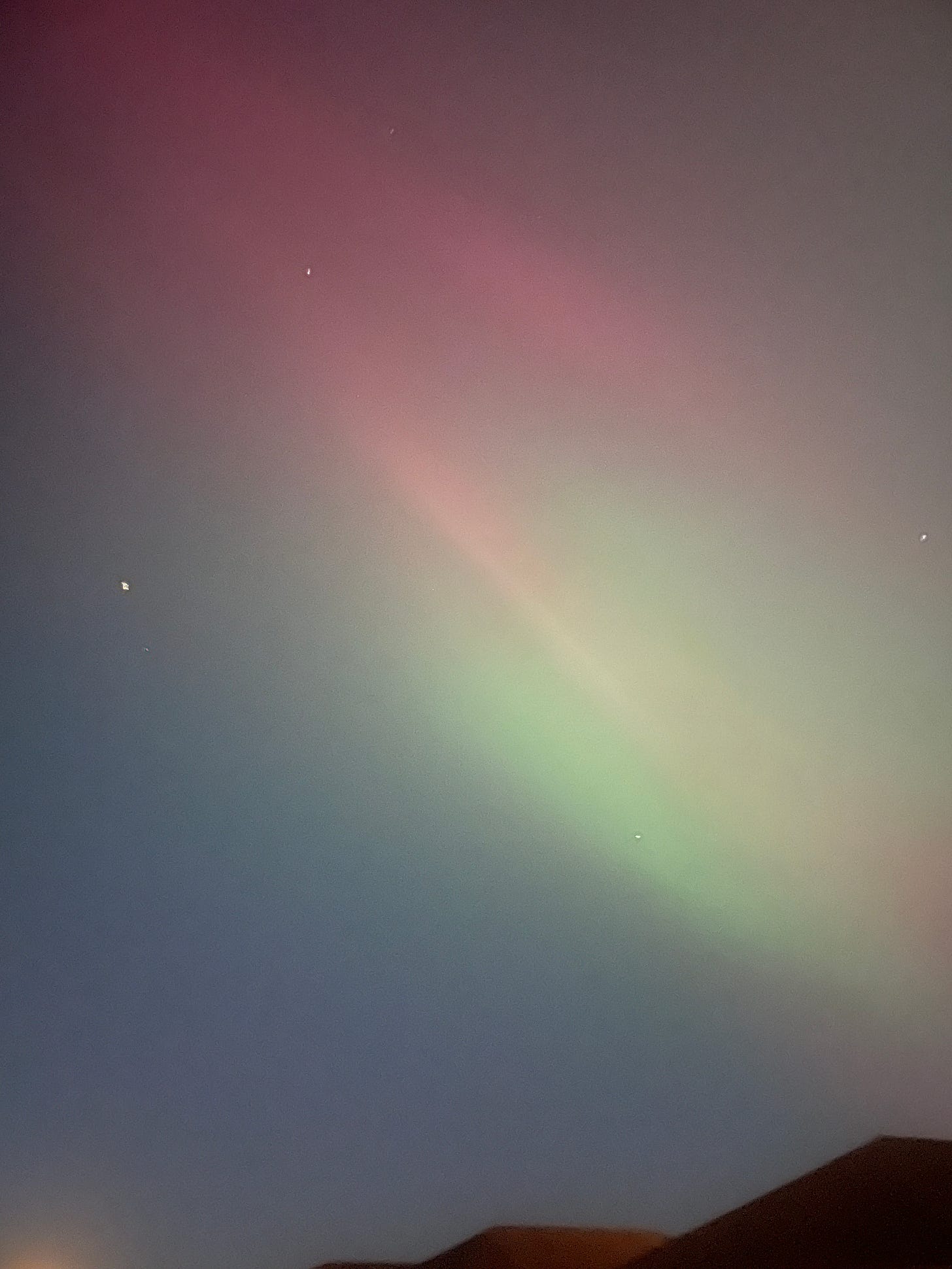Though the darkness hide thee
Thinking about divine hiddenness

Around 200 years ago Reginald Heber, inspired by the Nicene Creed, the throne room scene of Revelation 4, and the doctrine of the Trinity, penned four simple stanzas that would become one of the most beloved hymns in modern Christianity.
Heber’s influences aren’t difficult to find in the song’s lyrics. The first verse (in addition to the refrain “Holy, holy, holy”) speaks of the Trinity directly:
Holy, holy, holy! Lord God Almighty!
Early in the morning our song shall rise to Thee;
Holy, holy, holy! merciful and mighty!
God in three Persons, blessed Trinity!
Similarly, verses two and four evoke a beautiful throne room scene that ultimately consumes all of creation:
Holy, holy, holy! all the saints adore Thee,
casting down their golden crowns around the glassy sea;
cherubim and seraphim, falling down before Thee,
which wert and art and evermore shalt be.…
Holy, holy, holy! Lord God Almighty!
All Thy works shall praise Thy name, in earth and sky and sea;
Holy, holy, holy! merciful and mighty!
God in three Persons, blessed Trinity!
I love those words, I love the images they bring to mind, and I love this hymn. But recently, the third verse has been the one that’s grabbed my attention:
Holy, holy, holy! though the darkness hide Thee,
though the eye of sinful man Thy glory may not see;
only Thou art holy, there is none beside Thee,
perfect in pow'r, in love, and purity.
In contrast to the rest of the song, there’s not a direct parallel to Revelation 4 (or Isaiah 6) in this verse. In fact, the concept of God being hidden, his glory unable to be perceived by the “eye of sinful man,” seems altogether different from the theme of the rest of the song.
If God is so holy that “all his works shall praise his name,” how can he simultaneously be shrouded by darkness?
Lately, I’ve been thinking of this verse as a (likely unintentional) meditation on the problem of “divine hiddenness.”
Divine hiddenness essentially asks, “If God exists, why doesn’t he make himself more obvious?”
I think that question can produce two clear gut-instinct responses. Either:
“That’s a good point. Why doesn’t he make it more clear that he exists?” or
“What do you mean? I perceive the presence of God in all kinds of ways.”
I think those responses encapsulate a range of different valid reactions to the question.
Is God hidden?
Though often used as an argument against God’s existence, I don’t want to assume that the only people struggling with the so-called hiddenness of God are nonbelievers.
In my very first post on Warranted, I wrote about the immense loneliness I felt during a worship service in college when I felt like everyone around me was interacting with a God I couldn’t find. I became a believer as a young teenager, but Christian pedigree didn’t make my search for God in my late teens and early twenties any easier.
I wasn’t unrepentant or actively rejecting Christ; I just wasn’t experiencing the presence of God. So, I know what it’s like to be seeking God and feel as though the search just ends up in an empty, deaf universe. But I also know what it’s like to keep moving through those moments.
Who is God?
“Holy, Holy, Holy” actually gives us one key to unlocking the mystery of divine hiddenness: the Trinity. Understanding the distinctions between each member of the Trinity is crucial to understanding who God is and what it could mean for him to reveal himself to us.
Since Heber was inspired by the Nicene Creed, let’s take a look at how that document defines each member:
The Father:
“We believe in one God,
the Father almighty,
maker of heaven and earth,
of all things visible and invisible.”
My working theory is that the Father is who we think of when we say “God.” Sure, that title technically encapsulates all three members of the Trinity, but the Father is the Creator, the voice that said, “Let there be light.”
The Father’s fingerprints are visible in every element of creation. When I think about the intricate design of nature, from geological formations to the cells in the human body, I can’t help but notice the Father’s creativity and intentionality.
The Son:
“And in one Lord Jesus Christ,
the only Son of God,
begotten from the Father before all ages,
God from God,
Light from Light,
true God from true God,
begotten, not made;
of the same essence as the Father.
Through him all things were made.
For us and for our salvation
he came down from heaven;
he became incarnate by the Holy Spirit and the virgin Mary,
and was made human.
He was crucified for us under Pontius Pilate;
he suffered and was buried.
The third day he rose again, according to the Scriptures.
He ascended to heaven
and is seated at the right hand of the Father.
He will come again with glory
to judge the living and the dead.
His kingdom will never end.”
The Son, Jesus, is God incarnate. That is to say, he is the member of the Trinity who was born, lived, died, and was resurrected in a human body. He is the “firstfruits of all creation,” the archetypal human, the Savior and Redeemer of the world.
I’ve always felt like the incarnation of Christ was a clear counterpoint to the question of divine hiddenness. If we believe in the reality and historicity of Christ’s life, death, and resurrection, then we can affirm that through him God has made his presence (and, therefore, existence) clear and comprehensible.
The Holy Spirit:
“And we believe in the Holy Spirit,
the Lord, the giver of life.
He proceeds from the Father and the Son,
and with the Father and the Son is worshiped and glorified.
He spoke through the prophets.”1
The Holy Spirit is the “Helper,” the “Comforter,” the member of the Godhead who speaks directly to the heart and allows us to understand our status before a holy God.
It is the active work of the Holy Spirit that helps conform you to the image and likeness of Christ as you “work out your salvation” each day. He is also evident in scripture as the divine inspiration that allowed the Bible’s authors to write the poems, narratives, and prophecies that help reveal God’s character to the world.
So, what do you do when God seems impossible to reach?
In college, when I was wrestling with the concept of God’s hiddenness for the first time, it didn’t just end in some grand revelation that caused that “dark night of the soul” to end in dramatic, glorious fashion. Instead, like all other nights, this one slowly lifted. The sun began to peek over the horizon; I began to understand the nature of God’s presence in a new, more holistic way. And gently, like all the ones before, the morning came. I couldn’t force it to happen; I just had to hold fast, move forward in faith, and “wait for the Lord.”
Part of the task of the Christian life is learning how to seek God, fine-tuning the lenses through which you see the world to pick up on his providence in all that happens. He is omnipresent, but he’s not always obvious. (What I would give for a voice from a burning bush sometimes!)
By getting to know God, by attempting to understand the depths of the mysteries of Christianity, you’ll grow to understand new dimensions of his love for you and his presence in the world.
Seven years ago, I thought my prayers might just be returning void. Today, I can hardly look at a sunset without seeing his handiwork. If I approach a period of silence again, I can look to creation, the incarnation, and the steadfastness of the Spirit to guide me into the morning again.
From the archives:
Creeds are cool! Read a defense of them here, from February of this year:
A visual reminder:
We’re not going to get into a discussion about processions or the filioque here. Sorry!! But if you know a great book, article, or even podcast or YouTube video that discusses it, let me know! This is an area I’d like to study more.





Excellent post! I will have to dust off a hymnal and spend some time meditating through this wonderful song!
The dark night of the soul is a tough season to be in. But God used it in my life to teach me that he is bigger than my ability to perceive him, and greater than my capacity to experience him. He never left me, even though he was beyond my reach. He is supremely faithful.